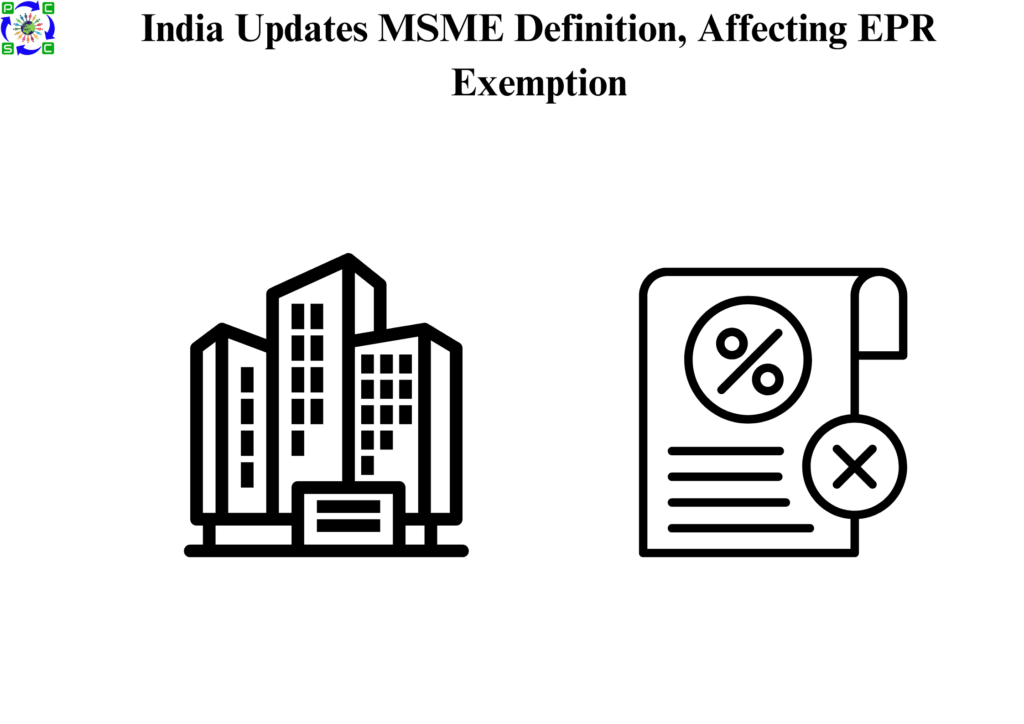 In March, 2025, India’s Ministry of Micro, Small, and Medium Enterprises (MSME) announced updated MSME classification criteria, set to take effect on April 1, 2025. The revised framework significantly raises investment and turnover thresholds, broadening the scope of enterprises that qualify as MSMEs.
In March, 2025, India’s Ministry of Micro, Small, and Medium Enterprises (MSME) announced updated MSME classification criteria, set to take effect on April 1, 2025. The revised framework significantly raises investment and turnover thresholds, broadening the scope of enterprises that qualify as MSMEs.
Key Impacts of the Revision:
- Increased MSME eligibility, allowing more businesses to access government incentives such as financial aid, tax benefits, and technical support.
- EPR (Extended Producer Responsibility) benefits, where MSMEs remain partially exempt from certain compliance obligations under India’s waste management regulations.
- Boost to economic growth, as more enterprises gain access to MSME-specific policies aimed at promoting innovation, sustainability, and competitiveness.

Exemptions Under Specific EPR Regulations
India’s Extended Producer Responsibility (EPR) framework provides exemptions for MSMEs under two key waste management regulations:
- Plastic Waste Management Rules, 2016
- MSME producers and brand owners are exempt from obligations related to recycling, reuse, and the use of recycled materials.
- MSME producers and brand owners are exempt from obligations related to recycling, reuse, and the use of recycled materials.
- E-Waste (Management) Rules, 2022
- Micro enterprises are not classified as obligated entities, meaning they are exempt from EPR compliance requirements under this regulation.
- Micro enterprises are not classified as obligated entities, meaning they are exempt from EPR compliance requirements under this regulation.
These exemptions reduce compliance burdens on smaller businesses, fostering ease of doing business while maintaining broader sustainability goals.
Stay ahead in sustainability compliance with Global PCCS —where expert insights meet the latest regulations. Unlock a future where compliance fuels sustainability, helping your business thrive in a greener, well-regulated world. For more information, contact us at info@globalpccs.com








 Authorised IMDS & CDX Training & Consulting partner for
Authorised IMDS & CDX Training & Consulting partner for






